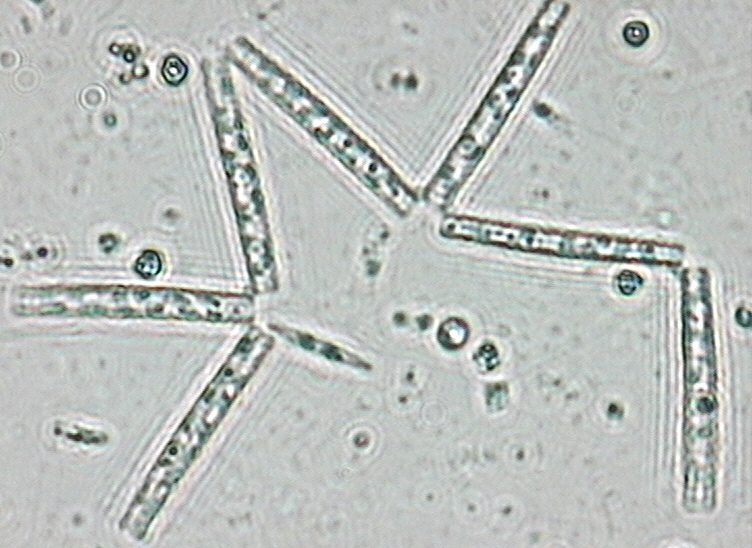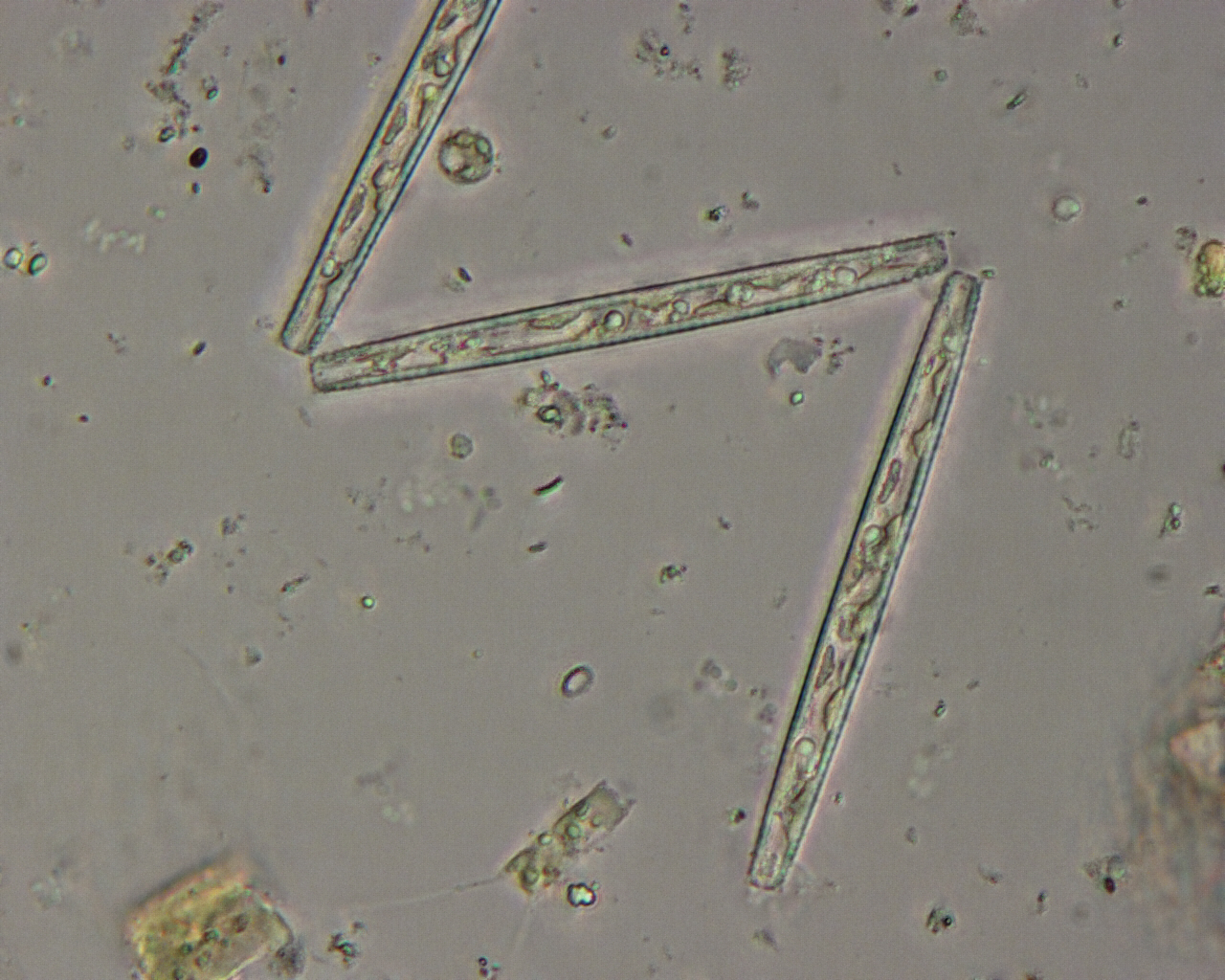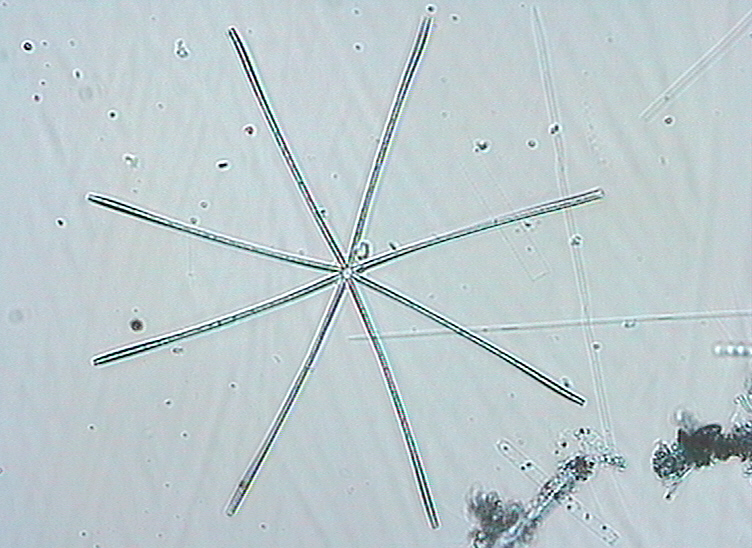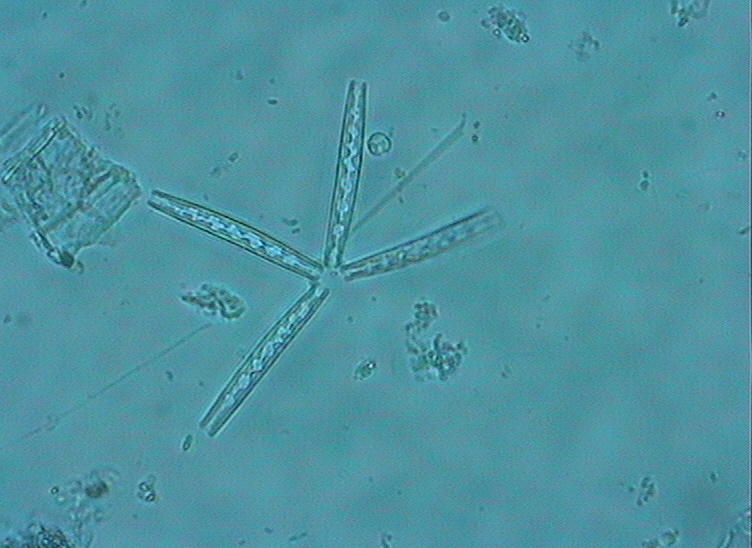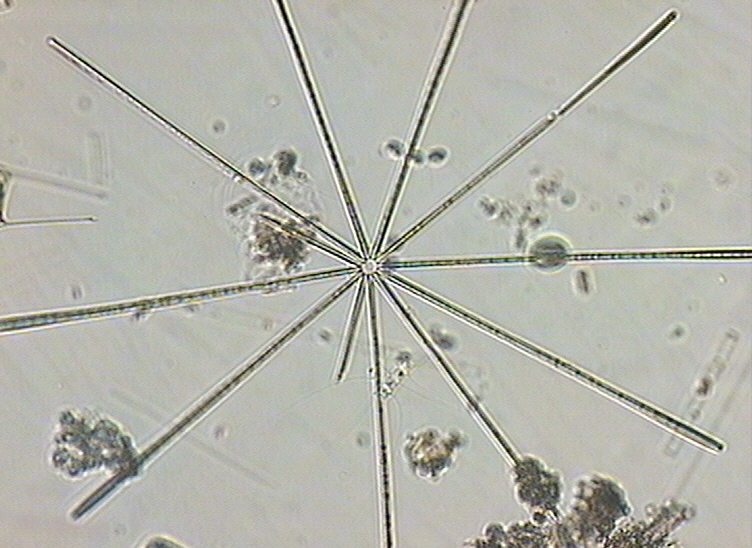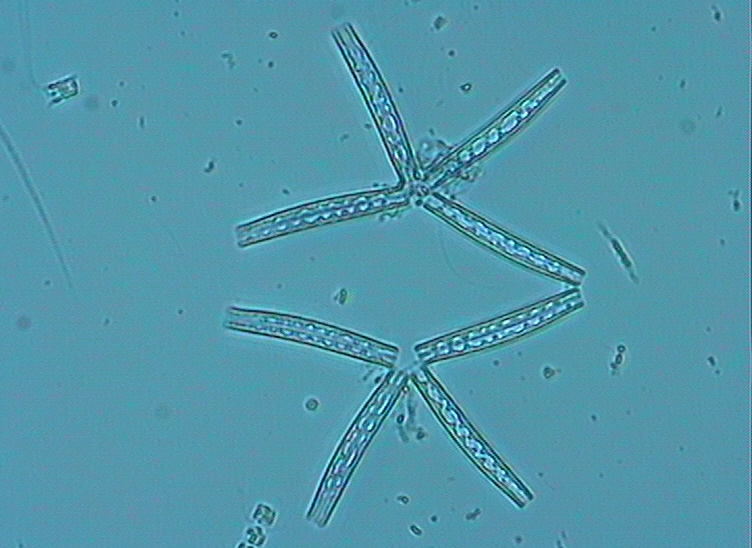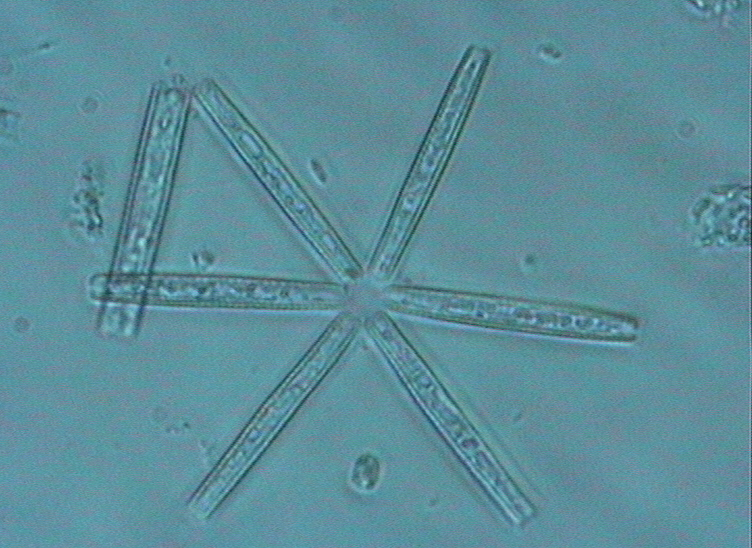
Species details
- Thalassiothrix nitzschioides : (Grunow) Grunow (1881)
- Thalassiothrix fraunfeldii var. nitzschioides: (Grünow) Jörgensen (1990)
- Thalassiothrix frauenfeldii : Grunow
- Thalassiothrix curvata: Castracane (1886)
- Synedra nitzschioides var. minore: Cleve (1883)
- Synedra nitzschioides: Grunow
The cells are joined together by triangular mucous cushions to form zigzag-shaped colonies. Alternatively, they be joined at the foot pole, forming fan-shaped colonies. In girdle view, the cells appear rectangular and slightly narrower in the centre; in valve view they appear linear or slightly curved. The extremities are rounded and similar to each other in terms of both shape and width. In addition, a short apical spine is visible by optical microscope. In the cell numerous small chromatophores are visible.
- Apical Axis: from 10 to 110 µm
- Transapical Axis: from 2 to 4 µm
- Areolae in 10µm: from 10 to 12 n°
Neritic, cosmopolitan, absent from Polar regions.
Distribution: as Thalassionema nitzschioides in Europe: Croatia (Vilicic et al. 2009), Netherlands (Dijkman & Kromkamp 2007), Romania (Caraus 2002). In the Atlantic Islands: Canary Islands (Gil-Rodriguez et al. 2003). In North America: Nova Scotia (Kim, Garbary and McLachlan, 2004) in Asia: Japan (Sawai et al. 2005). in the Antarctic and Sub-Antarctic Islands: Antarctic (Scott and Thomas 2005).
This species is similar to Thalassionema pseudo-nitzschioides, which tends to form colonies that are similar in shape but with a heteropolar apical axis with a broader and blunter extremity where a spine can often be seen by optical microscope.
Toxicity:Not reported.
Resistence Stages:Not reported.
The algae of Romania., Studii si Cercetari, Universitatea Bacau, Biologie 7, Caraus I., 2002, 1-694
Photosynthetic characteristics of the phytoplankton in the Scheldt estuary: community and single-cell fluorescence measurements., European Journal of Phycology 41:, Dijkman N.A., Kromkamp J.C., 2007, 425-434.
Phytoplankton dynamics in Pomquet Harbour, Nova Scotia: a lagoon in the southern Gulf of St., Lawrence. Phycologia 43, Kim K.Y., Garbary D.J., McLachlan J.L., 2004, 311-328.
Diatoms. In: Antarctic marine protists. (Scott, F.J. & Marchant, H.J. Eds), Canberra & Hobart: Australian Biological Resources Study; Australian Antarctic Division, Scott F.J., Thomas D.P., 2005, 13-201.
Liste des Diatomées de la Mer Noire., Scripta Botanica. Bot. Zap. 19:, Mereschkowsky C., 1902, 51-88
Checklist of Baltic Sea Phytoplankton Species. Baltic Sea Environment Proceedings No. 95, Helsinki Commission Baltic Marine Environment Protection Commission, Hällfors G., 2004,
Composition and annual cycle of phytoplankton assemblages in the northeastern Adriatic Sea., Botanica Marina 52(4), Vilicic, Djakovac, Buric, Z. & Bosak, 2009, 291-305.
Three extant species of Paralia (Bacillariophyceae) along the coast of Japan., Phycologia ., Sawai Y., Nagumo T., Toyoda K., 2005, 44: 517-529
Proctoctista. In: Lista de especies marinas de Canarias (algas, hongos, plantas y animales). (Moro, L., Martín, J.L., Garrido, M.J. & Izquierdo, I. Eds), Las Palmas: Consejería de Política Territorial y Medio Ambiente del Gobierno de Canarias., Gil-Rodríguez M.C., Haroun R., Ojeda Rodríguez A., Berecibar Zugasti E., Domínguez Santana P., Herrera Morán B., 2003, 5 - 30
_635192533302350000.jpg)
_635192533349880000.jpg)

